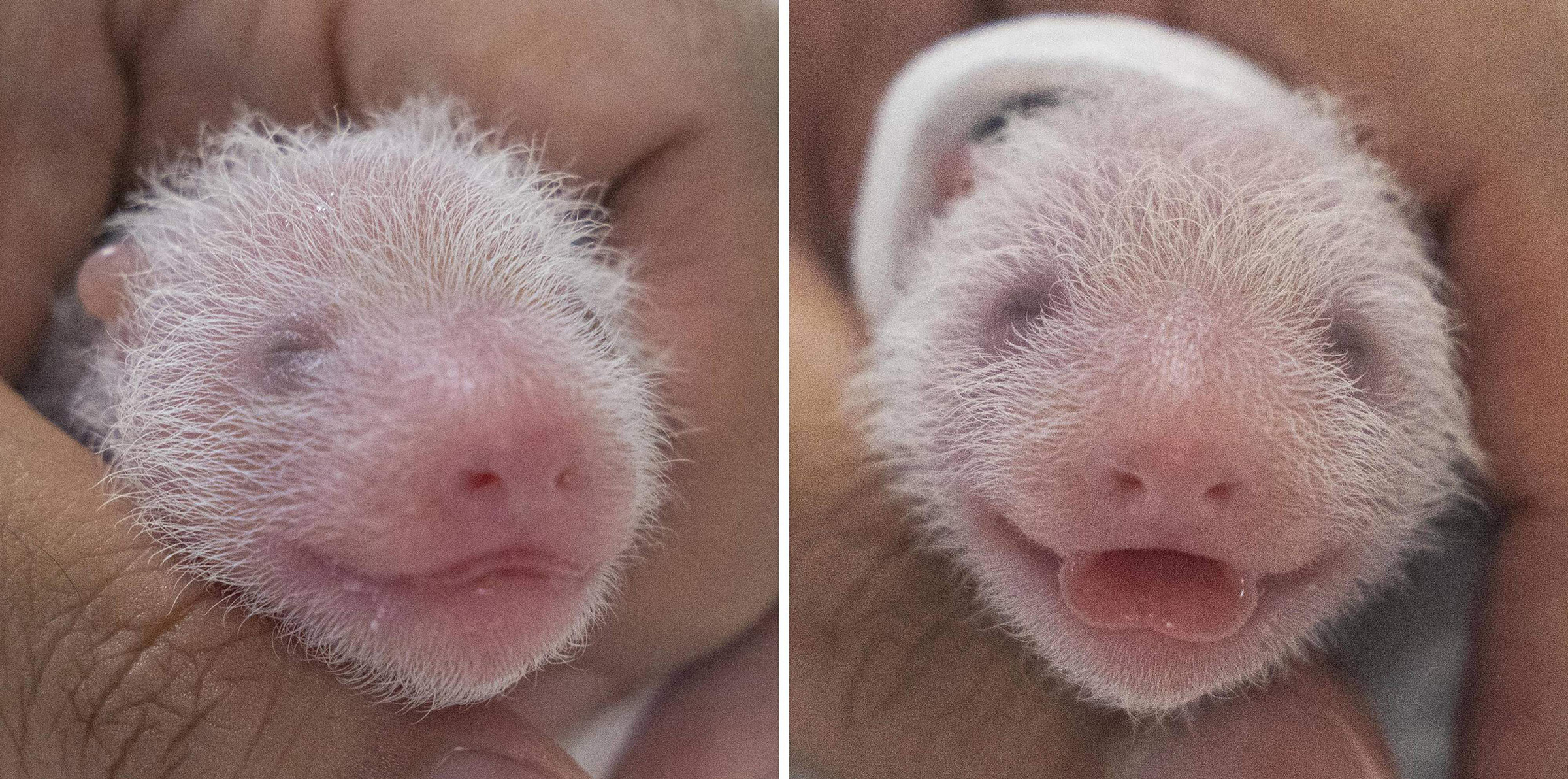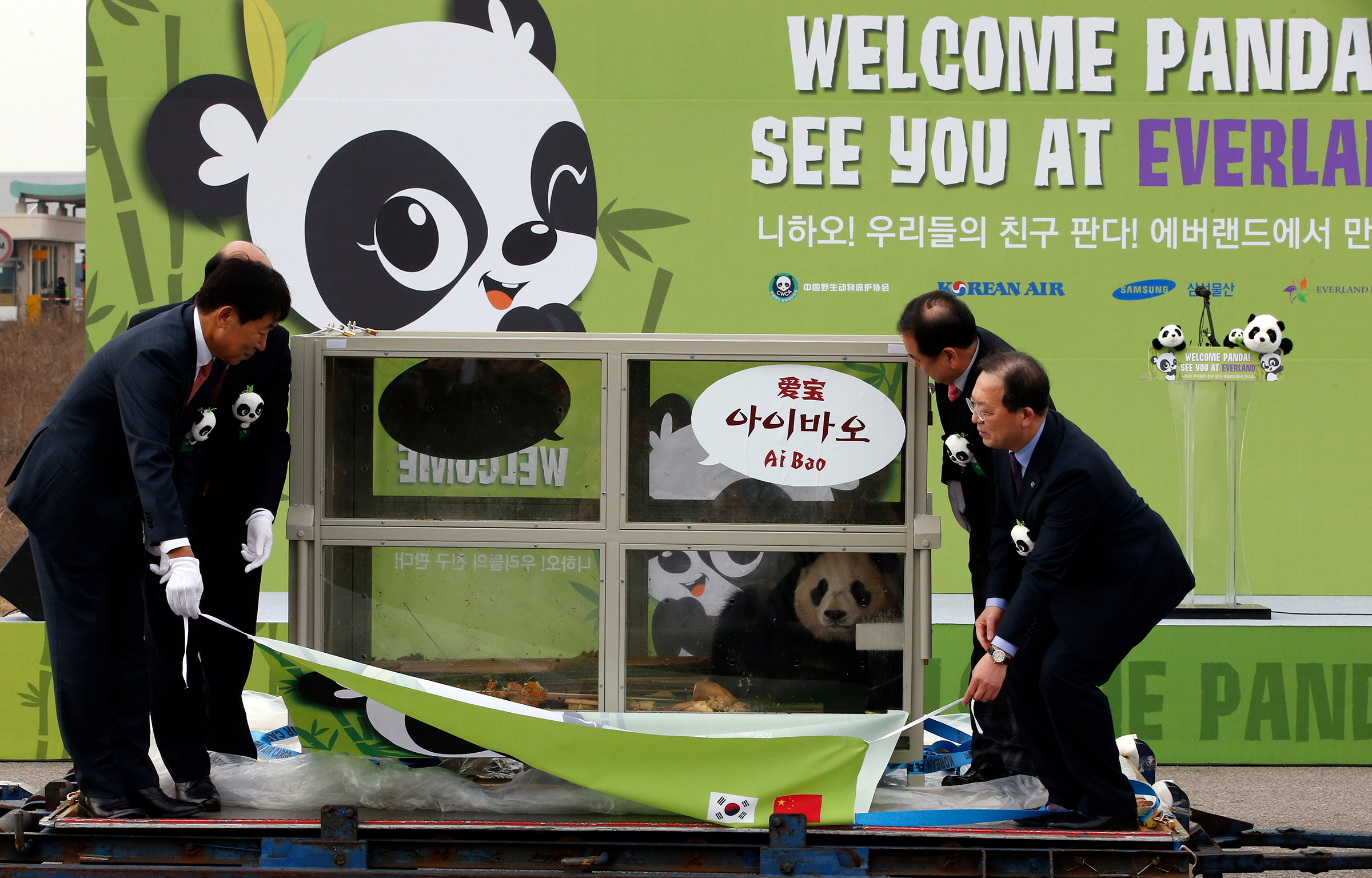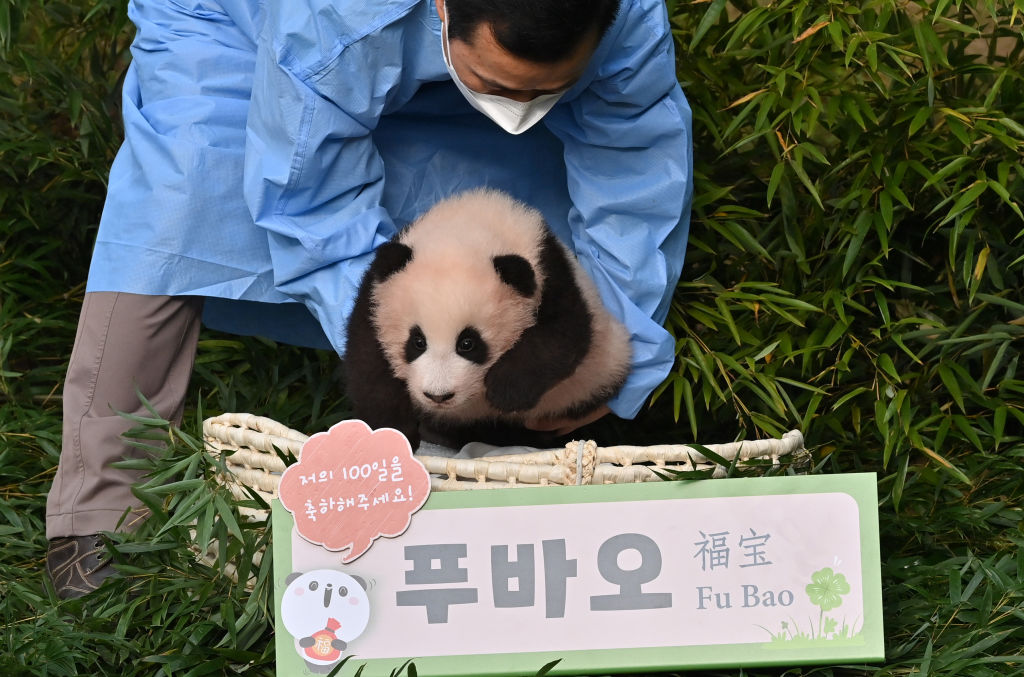Many countries have no pandas. Some have just one or two, in the hopes that they might breed. South Korea now has five, thanks to the births on Tuesday of twin cubs at Everland theme park just outside Seoul.
But while panda lovers in South Korea celebrate the arrival of the baby bears, a countdown for their relocation to China has already begun. That’s because almost all pandas, even ones born abroad, are considered the property of China—as part of a loan program it has with selected zoos around the world.

Negotiations are already scheduled to begin next month for Fu Bao, the twins’ elder sister who was born at Everland in 2020. She is set to be sent back to China for breeding before she turns four, the age when pandas usually reach sexual maturity.
How China monopolized its national animal
If you’re looking at a giant panda in a zoo outside of China, it almost certainly belongs to China.
For decades, China has used its adorable mascots, which are native to a few mountain ranges in south central China, as part of its unique “panda diplomacy” strategy. In 1972, it notably gifted two pandas to the National Zoo in Washington, D.C., amid warming relations between the two countries.
“It is a low-hanging fruit that can be used to generate goodwill between China and the people of other countries,” Benjamin Ho, assistant professor at the China program in Singapore’s S. Rajaratnam School of International Studies, tells TIME. Pandas housed in foreign zoos have remained important symbols of cooperation between China and countries around the world. The worldwide panda breeding program is also marketed as a joint research opportunity to broaden panda conservation efforts.
Read More: Meet the Pandas: China’s New Diplomats
But in the 1980s, faced with dwindling panda numbers, China decided to stop gifting pandas and start loaning them instead.
As part of a captive breeding program to boost the numbers of the vulnerable species, China loans giant pandas to zoos around the world for 10 to 15 years, at a price of up to $1 million per year—funneled into China’s panda conservation efforts.

Zoos also spend an additional hundreds of thousands of dollars to care for pandas, and some even go into serious debt to house them—though pandas have also been credited for their economic benefits as popular zoo attractions.
Read More: ‘I Get to Hug Them All the Time.’ What It’s Like to Take Care of a Pair of History-Making Panda Cubs
If loaned pandas die during their care, it’s another expense to incur. When Lin Hui, a celebrity panda at a Thai zoo died in April, the zoo’s director said that Thailand would have to fork out 15 million baht ($430,000) in insurance payout to China.
As of March, there were an estimated 66 pandas across zoos in about 20 countries outside of mainland China. But when their leases are up, the pandas will have to be returned to China.
What about pandas born outside of China? With rare exception, they belong to China, too.
Since 1985, China has required that the offspring of loaned pandas be returned to China. Zoos are also required to pay a “baby tax” of at least $200,000 for each cub.
Tohui, a female panda born in Mexico’s Chapultepec Zoo, who died in 1993 at 12 years old, was the first panda to be born and survive infancy outside of China. Her daughter, 33-year-old Xin Xin, who was born before China stopped gifting pandas and started loaning them instead, is now one of the world’s last living pandas who doesn’t belong to China.
Some unhappy returns
At times, panda hosts have decided to cut their leases short out of practical reasons. Meanwhile, China has also recalled its furry diplomats for political reasons.
In January, a Finnish zoo announced that it was considering returning two giant pandas it had loaned from China because the zoo could no longer afford their hefty upkeep. Similarly, Calgary Zoo in Canada announced in 2020 that, because of a shortage of bamboo during the pandemic, it would be returning a pair of giant pandas to China, four years before they were due to leave the zoo.
Imbued with political significance, the cuddly bears have also occasionally been used as pawns in geopolitical gamesmanship. In 2019, China recalled two pandas from the San Diego Zoo in California amid an escalating trade war between the two countries.
And in at least one instance, public pressure proved powerful enough for a panda loan to be discontinued. Just this year, Chinese social media users expressed serious concern and anger over a viral footage of a sickly looking panda in Memphis Zoo—Ya Ya, who had spent 20 years on loan in Tennessee. Despite clarifications from the zoo and assurances from experts flown in from China that Ya Ya was healthy, Chinese social media remained flooded with allegations of mistreatment and concerns over the state of Ya Ya, who was seen sporting thin, patchy fur in her enclosure.
“Is it time to end ‘panda diplomacy’?” asks an editorial published in Chinese state mouthpiece Global Times at the height of the controversy, before Ya Ya was ultimately returned to China in April at the end of her lease.

But panda diplomacy doesn’t look to be ending anytime soon. Back in South Korea, over the past three years, the panda Fu Bao’s close bond with her caretakers at Everland has melted hearts across the world. As her return date draws near, even some Chinese panda fans online are calling for her to remain in South Korea so she can spend more time with her beloved human friends and her new baby sisters—though it would only delay the inevitable.
“When Fu Bao returns, I hope that we give her as much, if not more love than South Korea,” reads a comment on Weibo. “Because she’s our national treasure, a treasure that brings luck. Please let Fu Bao continue to be happy.”
More Must-Reads from TIME
- Biden Drops Out of Presidential Race , Endorses Harris to Replace Him
- Why Biden Dropped Out
- The Chaos and Commotion of the RNC in Photos
- Why We All Have a Stake in Twisters’ Success
- 8 Eating Habits That Actually Improve Your Sleep
- Stop Feeling Bad About Sweating
- Welcome to the Noah Lyles Olympics
- Get Our Paris Olympics Newsletter in Your Inbox
Contact us at letters@time.com